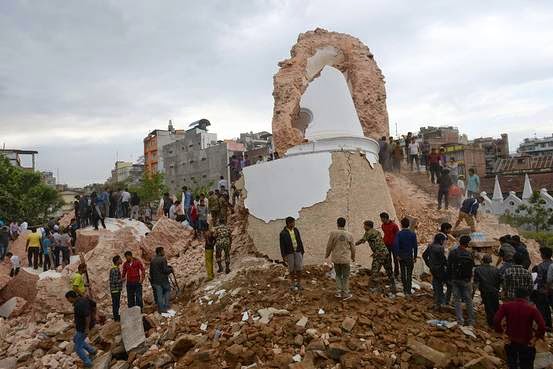Now that the monsoon has passed and things are gradually falling in place, it’s time to look back and reflect. John Dewey said, ‘we do not learn from experience, we learn from reflecting on experience.’
Last month we saw what could be easily called the worst monsoon in many years. Sarpang town was wiped from the face of the earth. Two southern towns of Gelephu and Phuntsholing spent many sleepless nights. Samtse lost a critical bridge. Road network across the country was disrupted. Our country suffered huge losses in damages.
But in these bad times we saw the most heartwarming responses from our men in uniform across the country volunteering in rescue efforts. We saw them putting public safety ahead of their own. In them we saw heroes we could always rely on in times of need.
In the middle of confusion in the south, where the fury of nature had left everyone helpless we saw the selfless leadership of our King and the Prime Minister. The kind of leadership the rest of the world could only pray for.
 |
| Pic: His Majesty's Official Page |
The endless queue of cars only showed how embarrassingly selfish we could become in the face of disaster. Everyone wanted their own tanks to be filled, disregarding the need of the fellow citizens. No one seemed to think that if our country at all suffered from fuel crisis we were all in it together.
 |
| Pic: The Bhutanese Facebook Page |
Despite the comforting official announcement against the problem the ugly rush continued at all depots for days. We believed more in the hoax. Of course what more can we expect from the population that once believed in the salt shortage rumor? Some families may not have finished the salt they selfishly hoarded that day in 2013.
Besides the fuel hoarding, we also heard stories of taxi drivers overcharging desperate travellers and we saw local vegetable vendors doubling the price of their produce in the absence of competition from imported vegetable. These are some qualities that make us not Bhutanese.
We Bhutanese are by nature harmonious social beings. That makes us stand out in the big blue world despite our smallness. But why do we act like some ghosts possessed us in times like this? Why do we become so selfish suddenly?
Now that the roads are cleared as promised and that we didn’t run out of fuel, what have we learned? Even if we weren’t in queue at the fuel pump, or had anything to do with the opportunist vegetable vendors and taxi drivers we are all equally guilty in this. Remember what Albert Einstein said,
‘The world is a dangerous place to live; not because of the people who are evil, but because of the people who don’t do anything about it.’
Besides the fuel hoarding, we also heard stories of taxi drivers overcharging desperate travellers and we saw local vegetable vendors doubling the price of their produce in the absence of competition from imported vegetable. These are some qualities that make us not Bhutanese.
We Bhutanese are by nature harmonious social beings. That makes us stand out in the big blue world despite our smallness. But why do we act like some ghosts possessed us in times like this? Why do we become so selfish suddenly?
Now that the roads are cleared as promised and that we didn’t run out of fuel, what have we learned? Even if we weren’t in queue at the fuel pump, or had anything to do with the opportunist vegetable vendors and taxi drivers we are all equally guilty in this. Remember what Albert Einstein said,
‘The world is a dangerous place to live; not because of the people who are evil, but because of the people who don’t do anything about it.’
This article is published in Business Bhutan on 6th August 2016

 Hunting Weapon
Hunting Weapon  The Dying National Game...
The Dying National Game... 









